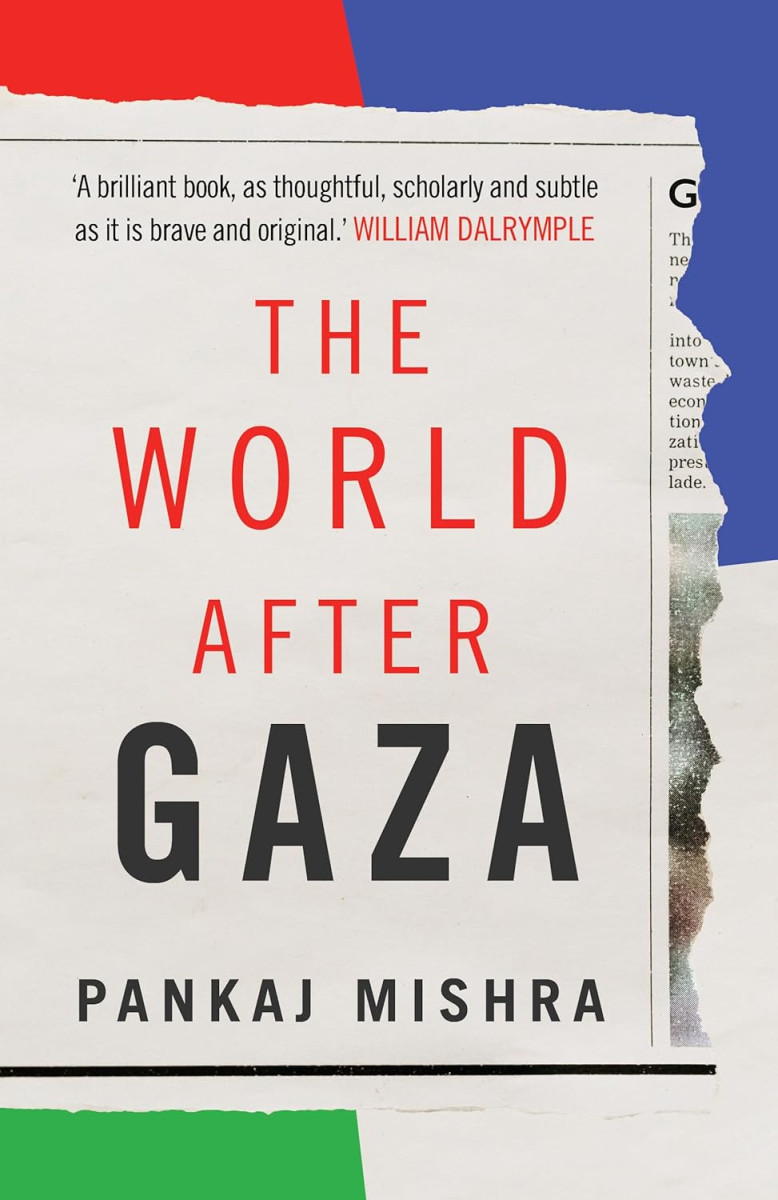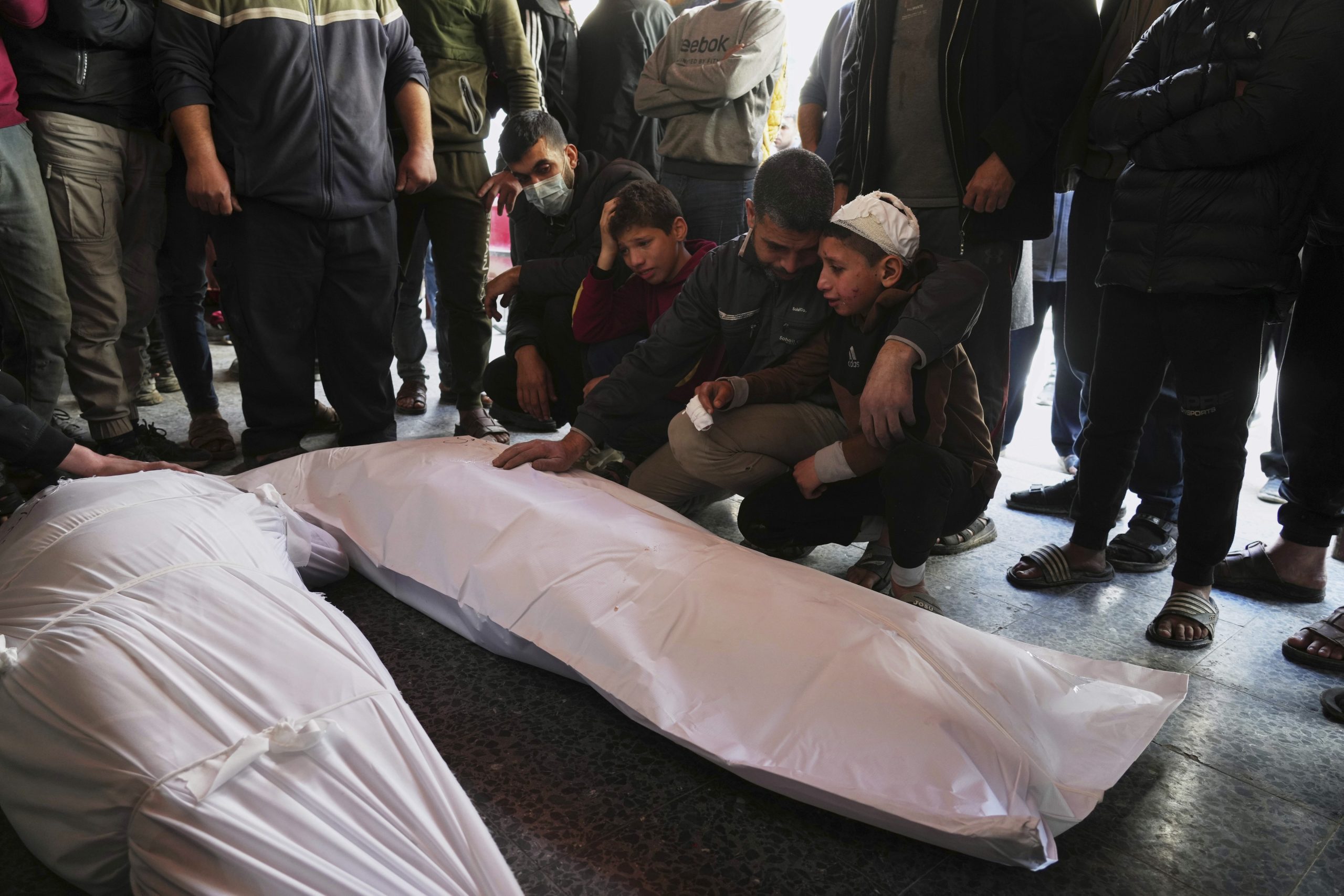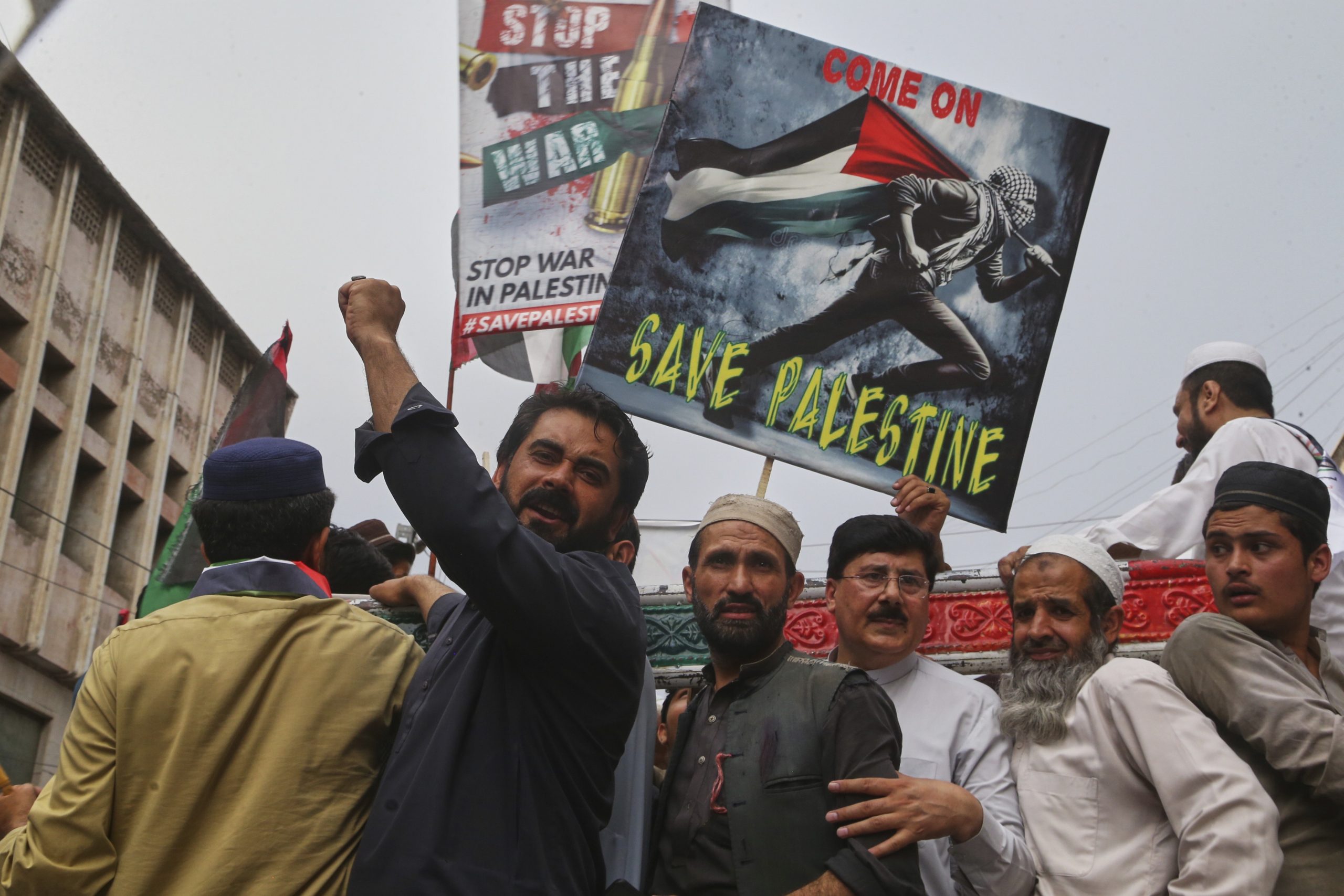A Moral History of Our World
“Look at this child,” stand-up comedian Jeremy McLellan is heard saying in a video even as the melancholy image of a kid, face grimy and streaked with tears, floats briefly into the picture frame. “For the cost of a cup of coffee a day,” McLellan goes on, “you can kill him.” Titled, witheringly, “10 ways to support Israel”, the video was released in early November 2023, a little less than a month into Israel’s savage bombing campaign in Gaza post the Hamas rocket strikes on southern Israel of October 7, 2023. Over 11,000 Palestinians, a large majority of them children and women, were dead by then.
But that was 17 months ago. As I write now, the Palestinian dead have topped 51,000, fully 80% of them civilians, 44% being children. To number-crunch a little more, the death toll comprises 2.1 percent of the pre-war Gaza population of 2.3 million, but doesn’t include the ‘collateral’ loss of 166 journalists’, 120 academics’ and 224 humanitarian workers’ lives over the 18 months since October 7, 2023.
But as staggering as these numbers are, they don’t even come close to conveying the sense of desolation and despair blanketing Gaza at this point. Gaza today is a wasteland of rubble and shattered concrete. There’s no clean water or electricity. Food is scarce. Rats and dogs scavenge among the ruins where corpses lie buried. Fetid pools of raw sewage assail the eye everywhere. Hepatitis A, scabies and respiratory disease are rampant. There’s not a school standing, nor a hospital, or a bakery or a mosque, and nine in ten homes – houses or apartment blocks – have been razed to the ground. On top of all that, Israel has now banned the UN agency for Palestinian refugees, UNRWA – Gaza’s last tenuous link to life – from Gaza altogether. "Abandon all hope, ye who enter here”: the inscription on inferno’s hell-gate could hardly have evoked a prospect more bleak.

Pankaj Mishra
The World After Gaza
Juggernaut, 2025
Meanwhile, the world outside Gaza has, for the most part, decided that the Palestinians’ cross is for only the Palestinians to bear. Since we are fully interconnected today across all geographies and time zones, no one can pretend that they are unaware how Israel’s murderous campaign is playing out. Indeed, for both the perpetrators and the victims, the onslaught on Gaza is a live-streamed war, with neither side able or even willing to throw a veil on the proceedings. And so the victims, in the words of South Africa’s representative at the International Court of Justice, were “broadcasting their own destruction in real time in the desperate hope...that the world might do something”. That was a vain hope, however.
Countries that have the power to do something, the proud democracies of the liberal West, are openly aligned with Israel – generously topping up its war chest, arming it with deadly new weapon systems, and clamping down with unprecedented ferocity on all popular protests against the carnage. The Global South is mostly powerless, or unwilling (like India under Modi), to try and stop the genocide or even protest it, or too far compromised, like most Arab nations of West Asia, in their foreign policy orientation and their economic interest to even want to make the effort to stop the massacre.
News media in most countries faithfully mirror the prejudices and biases of the ruling regimes of those countries. The great liberal media of the US and Europe have zealously ring-fenced the Israeli state, permitting themselves only highly sanitised representations both of Gaza’s landscape of misery and devastation and of the calculated brutality of Israel’s war machine: witness how the editors of the New York Times advised their staff against using, while reporting on Gaza, terms such as ‘occupied territory’ and ‘refugee camp’, not to speak of ‘ethnic cleansing’.
This is the proximate background to Pankaj Mishra's latest book, The World Sfter Gaza. In his prologue, Mishra confesses to having been almost compelled to write this book, to alleviate my demoralising perplexity before an extensive moral breakdown, and to invite the general readers into a quest for clarifications in a dark time.
He was also driven, Mishra goes on to add, by a deep sense of personal moral responsibility. He was thinking of what Karl Jaspers has referred to as ‘metaphysical guilt’, the burden of guilt that a witness bears, the guilt of the bystander indicted unforgettably by Rabindranath Tagore:
Upon everyone who commits a wrong
And everyone who stands by and watches,
May your wrath rain down on them all, my Lord,
And sear them, like forest fire burning grass.
But The World After Gaza is not only an anguished cry against monstrous injustice. It’s a tour de force of historical enquiry into the roots of the Gaza genocide: an enquiry shaped by Mishra’s extraordinarily acute understanding of the politics of memory, the culture of imperial racism and the dynamics of decolonisation. Mishra’s readings in the areas of his enquiry are as wide as they are deep, making it possible for him to trace the linkages between memory, culture and hegemony with great clarity. His scholarship can at times be a little overwhelming, but he succeeds in firmly tethering his narrative to an exploration of where the current war came from and where it is likely headed. That he is able to situate that narrative right at the centre of the politico-cultural history of post-war Western liberalism speaks to a rare virtuosity.
Divided in three parts. the book’s first segment, titled 'Afterlives of the Shoah', is subtitled 'Israel and the Incurable Offence' in what I like to believe is an echo from the work of the great Italian writer Primo Levi, an Auschwitz survivor whom Mishra greatly admires and frequently quotes from: the first chapter of Levi’s last-published book before his suicide in 1987 – The Drowned and the Saved – is captioned 'The Memory of the Offence'. Here, among other things, Mishra traces the history of how his own views on Israel evolved from unabashed admiration (a picture of Israel’s eyepatch-wearing defence minister Moshe Dayan hung on the young Mishra’s bedroom wall at a time India did not formally recognise the state of Israel) to a more nuanced understanding of both the Israeli nation-state’s raison d’etre and the anomalies underpinning its founding at the precise time and location at which it happened to be established.
The turning point came in 2008, in course of a trip to Israel and Gaza, when Mishra became aware of the gulf separating Israelis from Palestinians: the quality of life assured to an Israeli citizen and the persecution that a Palestinian was daily subjected to. And he “found it unnerving, too, that their (the Palestinians’) persecutors were the West’s former victims who now possessed the ease and safety of a Western lifestyle on both sides of the wall dividing Israel from the West Bank”.
The irony of the former victims of a genocide – or of a state created in their name – remorselessly persecuting a people that had no hand in that genocide, is great indeed. But that’s hardly the whole story. Increasingly since the Six-Day War of 1967, Israel has rationalised that persecution by casting itself as the victim of another, a newer genocide. This is an insidious attempt to conjure a new holocaust, a second Shoah, into existence, and the Western liberal states have helped legitimise this odious Israeli narrative.
How the West has done that is outlined in part 2 – 'Remembering to Remember the Shoah' – which comprises two very insightful essays: 'Germany from Antisemitism to Philosemitism' and 'Americanising the Holocaust'. The first recounts postwar Germany’s clumsy and desultory jab at denazification, a deliberately incomplete process designed to answer to the (largely imaginary) needs of the Cold War. The West-backed Federal Republic of Germany – Soviet-backed German Democratic Republic tried to do a relatively better job overall of exorcising Hitlerism – was left to be helmed by politically as well as ideologically compromised leaders like Konrad Adenauer whose primary concern was to cover their – and their aides’ – tracks under Nazi rule. In their anxiety to burnish their personal and collective CVs, the FRG establishment went into an overdrive of philosemitism, a phenomenon early commented upon by Hannah Arendt who was visting Jerusalem to report on the Eichmann trial of 1961-62.
As the FRG economy began to thrive, it became a steady and reliable source of finance and weapons to the Jewish state. From the 1970s, Germany began to commission a steadily expanding network of Jewish memorials and museums principally conceived to redeem its ghastly record of antisemitism. The German state’s hyperactivity in this area, Mishra has cogently argued, was occasioned more by political expediency than serious introspection. Years later, Chancellor Angela Merkel was disarmingly ingenuous in announcing that supporting Israel was the German state’s raison d’etat. During 2023-24, the ‘socialist’ chancellor Olaf Scholtz amplified that message by outlawing all public demonstrations in support of Palestine.

Palestinians mourn over the bodies of Al-Mashharawi family members, who were killed in an Israeli airstrike that hit their home, at Al-Ahli Hospital in Gaza City on Saturday, March 22, 2025. Photo: AP/PTI
The US’s embrace of Israel is an even more intriguing story. During and immediately after the war, American administrations were wary of allowing too many Jewish refugees into the US where Christian evangelicals have traditionally been strongly antisemitic. The US government was also politically invested in downplaying the horrors of Nazism, because Cold War priorities overrode other concerns. Besides, the US also cynically sheltered many prominent Nazis who, the administration believed, would render invaluable help in rocket technology and industrial espionage. So the Holocaust, and with it the Jewish state, were not issues the US was ready to privilege over the pressing demands of realpolitik.
A striking illustration was the ordeal faced by the doyen of Holocaust studies, Raul Hilberg, who, through the 1950s and the 1960s, struggled to place with any decent publishing house his path-breaking exposition of the machinery of the Holocaust, The Destruction of European Jews, now considered a classic. Indeed, Hilberg’s PhD supervisor at Columbia, a respected scholar of Nazism himself, had a dire warning for his student when Hilberg confided his intended subject of research to the professor: “It will be your funeral.” Overall, the US political and cultural elite had little use for the Holocaust in the immediate post-war years.
The tables began to turn in the late 1960s, especially after the Six-Day War of 1967. Decolonisation was a major theme of those years and the US’s own military-political presence in south-east Asia came under sustained attack from forces of national resurgence in Asia, Africa and Latin America. Arab nationalism threatened to upend imperial and neo-colonial power structures in West Asia, and slowly the US came to increasingly align itself with Israel as a bulwark against that nationalism. The US soon emerged as Israel’s biggest backer and benefactor, and a beleaguered Israel happily mutated into a vassal state. That’s when there occurred an explosion of American interest in the Holocaust, and a large number of government institutions and semi-government agencies dedicated to honouring and perpetuating its memory sprang up across the country. The Holocaust transitioned from being a colossal historical atrocity to the state-anointed archetype of Evil with a capital E. It was the Nazi holocaust’s virtual apotheosis. The Holocaust was now a sacred quasi-religious institution, and Israel the unchallenged and only legitimate inheritor of its memory.
From here it was but a short step to the sacral rite of equating all opposition to the state of Israel with antisemitism, a rite that has gained wide currency across Western liberalism today. A corollary to such intellectual skulduggery is what Mishra calls 'atrocity hucksterism', a term featuring in the title of section 2 of his third chapter. In essence, atrocity hucsterism is akin to what Norman Finkelstein has memorably called ‘the holocaust industry’. Joseph Biden repeatedly revealed his culpability for such hucksterism: for example when he publicly shared fake videos purporting to show Palestinians slitting the throats of Israeli babies.
But it's section 1 – titled 'Clashing Narratives of the Shoah, Slavery and Colonialism' – of the third and last part of his book that most clearly posits Mishra’s thoughts on the malign links between colonialism, institutionalised racism and modern-day Zionism, borne out by the mutual admiration and support for each other of Israel and then-apartheid South Africa. Also by the Israeli government’s brazenly racist discrimination against Arab Jews who moved to the Promised Land after 1948 in the hope of uniting with their co-religionist brothers and sharing in Israel’s material prosperity. Mishra believes that the ruling Israeli elite, derived as it is from white (i.e. European) as distinct from brown (or Asiatic) stock, has now lapsed into the centuries-old colour/racial prejudices of the European colonial powers, and that the fault lines today between Israelis and Palestinians can also be mapped on what W.E.B. Du Bois famously described as the ‘colour line’.

Traders hold a demonstration against Israeli airstrikes and to show solidarity with Palestinian people living in Gaza, in Peshawar, Pakistan Friday, April 18, 2025. Photo: AP/PTI
In 'Hope in a Dark Time', his epilogue to this remarkable book, Mishra reflects on "the profound rupture… in the moral history of the world since the ground zero of 1945". But he also thinks of the millions of protesters – mainly young men and women across the world’s cities and towns – against Israel’s genocide who, because they seem to be the only ones "jolted into ethical consciousness by the calamity of Gaza", can perhaps be trusted to "restore the strength and dignity of the individual conscience". "It is possible, even likely, that (the protesters) will lose…But their expressions of outrage and feats of solidarity may have somewhat alleviated the great loneliness of the Palestinians".
Pankaj Mishra likes to think that it is these protesters who are waging a greatly unequal battle against indignity and injustice that yet ‘hold out some hope for the world after Gaza’. We cannot but agree with him.
Anjan Basu can be reached at basuanjan52@gmail.com
This article went live on April twenty-second, two thousand twenty five, at zero minutes past seven in the morning.The Wire is now on WhatsApp. Follow our channel for sharp analysis and opinions on the latest developments.




